Self-employed agricultural engineer Jim Harrow is well known to Fife farmers as a man to call when they need urgent repairs to their vegetable planters, harvesters and crop sprayers.
But the Cupar-based 59-year-old is also on his second stint as chairman of the Fife Vintage Agricultural Machinery Club – an obsession which, he laughs, is like an “illness”.
A member of the club for 27 years who’s been on the committee for 26, he grew up at Craigie Farm near Leuchars, where his farm worker father and grandfather were gaffers.
The former pupil of Leuchars Primary and Madras College, who studied at Elmwood College in Cupar, drove tractors for a spell. He later “discovered it was more fun fixing them than breaking them!”
It was while serving his time with his local David Brown dealership, however, that he developed his love for vintage tractors.
“I’d always been interested in tractors. That’s why I wanted to work with them,” the grandfather-of-five tells The Courier.
“But it was later on when I got the chance of getting an old tractor off a farmer to basically try and get it going again that I discovered there was quite a lot of fun to be had.”
What was the first vintage tractor the Fife enthusiast tried to fix-up?
The first tractor Jim tried to fix up was a petrol-paraffin David Brown 25.
It was in such a state that it “came home in boxes”.
He admits he never got it going again – blaming a shortage of parts.
But it got him hooked and today he’s the proud owner of various vintage farm vehicles including a David Brown 880, a Fordson Dexta, a Massey Ferguson 35, a 1394 and “two grey Fergies” – one petrol and one diesel.
Also a member of the Fife Show committee, this year’s annual vintage tractor parade either sees him driving a Fife Vintage Agricultural Machinery Club raffle prize tractor around the ring, or one of his own. But he doesn’t always think shiny and new is best.
“I prefer to see vintage tractors working than shiny!” says Jim, who previously worked for the former Gillies and Henderson agricultural dealer in Cupar, on a farm at Inchture and then for a Lamborghini tractor garage in Ladybank before going self employed.
“I’m one of the boys who likes to see them do what they were made to do.
“I’m not against shiny! But I’ve seen some right shiny stuff that’s not fit for purpose.
“They are towed in and towed out and couldn’t do a day’s work if you wanted them to. I hate these ones.”
Jim explains that as well as the Fife Show, where raffle tickets are being sold this year to raise money for Poppyscotland, Fife Vintage Agricultural Machinery Club has its annual rally at Kilmaron, Cupar, on June 9. The club also does charity runs and attends other rallies.
They hold ploughing matches in winter, during which they try to get juniors involved.
“You’ve got to catch the youngsters before they learn about beer and women!” he laughs, adding that their “inclusive” number includes girls.
But he also says the hobby has “so many levels”.
Nostalgia for vintage tractors and farm machinery comes in many guises
It isn’t just about full size tractors. Some people collect literature, scale models, make dioramas or, like him, also collect pedal tractors from the 1970s and ‘80s.
The period of “nostalgia” that people are interested in also varies.
“That’s the thing about the hobby,” he adds.
“There are boys who like the wartime stuff, there are boys that like the new stuff, but there are loads of younger members that are into the stuff with quiet cabs, because when they were boys, that’s what they remember.
“It’s all about going back to a sweet spot when you were young.
“The ones I have are taking me back to what I served my time on, and, being a Fifer, you can get two Davie Broons for the price of a Massey Ferguson!
“But the other thing about tractors is there is serious banter between the boys that like the Fords or the boys that like the Massey Fergusons.
“The nonsense that goes on at a meeting or a plough match that ‘red’s better than blue, green’s better than red’, or whatever. The banter and the carry on that we have. If you have a mishap, there’s always a picture that’ll haunt you for years to come!” he laughs.
Fife Show vintage tractor parade commentator is a lifelong enthusiast
A former neighbour of Jim Harrow is Peter Small, 63, who grew up at Vicarsford Farm, by Leuchars.
A founder member of the Fife Vintage Agricultural Machinery Club when it was formed in the late 1980s, he has been doing commentary for the vintage tractor parade at the Fife Show since 1988.
Peter has been based at Falfield, near New Gilston, since Vicarsford was sold in 1987.
Vicarsford had been in the family since 1933 with the Smalls previously farming at Glenfarg and Scotlandwell.
They moved to Fife in 1886 – initially farming at West Hall then at Lindifferon and Fernie Mill, by Cupar.
Employed by agricultural co-operative RingLink (Scotland) Ltd in Cupar since the Covid-19 pandemic, the former pupil of Tayport Primary and Bell Baxter High School, who studied agriculture at Elmwood College, has also dabbled in journalism, which he loved.
He wrote historical farming articles for The Courier under former farming editor Ewan Pate for a number of years. He also worked on period TV drama Strathblair in rural Perthshire, providing vehicles.
When he wants to “unwind”, however, he disappears into a world of agricultural history and fixing up of old agricultural machinery.
“I’ve always had this burning interest in agricultural history,” explains the father of two school age children, Eleanor and Douglas, whose wife Karen is a principal teacher of guidance at Bell Baxter High School in Cupar.
“I wanted to try and pursue a career in it.
“But leaving school at 16, going to work on the farm, and with no university qualifications, it made it difficult. I didn’t particularly want to leave the area as I knew the area and knew the history of the area. I didn’t want to break that.”
What inspired Peter Small to become a vintage tractor enthusiast?
Peter explains that it was a Case tractor bought new by his grandfather in 1938, another dated 1945, and an old Caterpillar currently languishing in his shed alongside other dilapidated equipment, that sparked his interest.
“They were bought new by my grandfather and for some reason they were never ever traded in,” he says.
“That’s probably where my interest lay, because these tractors were there and I was fascinated by that.
“My granny and my grandad telling me stories, finding old photographs and finding old bits of machinery lying about is probably where it all started.”
Peter says lots of vintage hobbyists are in it for nostalgia. They want to “remember their youth”.
But he’s not interested in that. He wants to go further back to a time before he was around.
“World War Two farming fascinates me,” he says, showing me various old photographs, including the first combine harvester at Craigie and a wartime aerial photograph of a mocked up airfield at Craigie/Vicarsford, designed to lure the Luftwaffe away from RAF Leuchars.
“I’m not really interested in anything from the ‘60s, ‘70s, ‘80s.
“I want to know about the stuff before my time! The first combines and stuff like that.”
Peter shows off his grandfather’s original Case tractor, fondly known as ‘Auld Jess’, which was bought for around £200 from Baxters of Milnathort in 1938.
A man called Sid Taylor was the first driver. Rab Brown came after that.
He vaguely remembers his dad Andrew, who still lives at Falfield, driving the 27 horsepower petrol-paraffin machine that worked in the fields until the 1960s. That machine has been restored.
A second Case bought by his grandfather, known as ‘Big Red’, but originally bright orange, remains in its original, now rusting state.
Peter wants to keep it that way to retain authenticity.
When the vehicles were overtaken by technology, they sat in a shed for 10 years, rusting.
But significantly, he also has another Case tractor which belonged to his uncle which he wants to restore as a “project” with his 11-year-old son, Douglas.
Former Fife chairman’s Polish father inspired a love of vintage farming vehicles
Someone else filled with pride and joy when it comes to vintage farm machinery is past chairman of the Fife Vintage Agricultural Machinery Club John Sinski, of Markinch.
Born and bred on a farm near North Berwick, the 68-year-old’s interest traces back to his late father Frank, who was a farmer near Krakow in Poland before the Second World War.
Originally forced to fight in the German Army following Nazi Germany’s invasion of Poland, Frank escaped to Britain via Spain in 1940.
He joined the Polish 1st Armoured Division which was mobilised with the British Army in 1941.
After the war, which he rarely talked about, and never returning to Soviet-controlled Poland, Frank worked on farms in Fife before settling at North Berwick where John was brought up, immersed in the farming way of life.
After retiring, Frank set up his own contracting business.
It was one of the tractors Frank had since it was three years old in 1963/64 – a 1960 Nuffield Universal 4 – which John now keeps, with others, in his lock-up sheds.
Still in working order, other than some mechanical work, John has consciously not restored it.
“I want to keep it original!” he explains, adding that the rust is down to it sitting outside at his dad’s friends for 20 years after it stopped being used in the 1980s.
Two years ago, however, what John did do was buy an identical restored model which he saw advertised.
“I bought it down south – I saw it and I fancied it,” says John.
“I don’t have a back story on it. I know the guy who owned it got it as an old tractor and restored it.
“But it was built in Bathgate, probably at the same time as the other.”
Another of John’s tractors which has been fully restored is a 1949 Ferguson TED 20, petrol paraffin model.
“I’ve only had it about a year,” adds John, who drives in the vintage tractor parade at the Fife Show.
“I bought it from a gentleman in Kirkcaldy that passed away.
“It’s a nice wee tractor. It runs like a watch.
“It would be used for all farm work – ploughing, harrowing, seeding. All that sort of stuff.
“It would have been in use until the 1960s.
“But after that much newer tractors came in.
“The older ones were not as economical to run as a diesel tractor. Diesel was cheaper to buy than paraffin and petrol.”
John, who moved to Fife in 1985 to work for agricultural dealerships – later moving into agricultural finance – has been on the Fife Vintage Agricultural Machinery Club committee for 25 years.
When it comes to public events like the Fife Show and vintage rallies, he likes nothing more than explaining to youngsters how farm technology used to be, in the days before GPS.
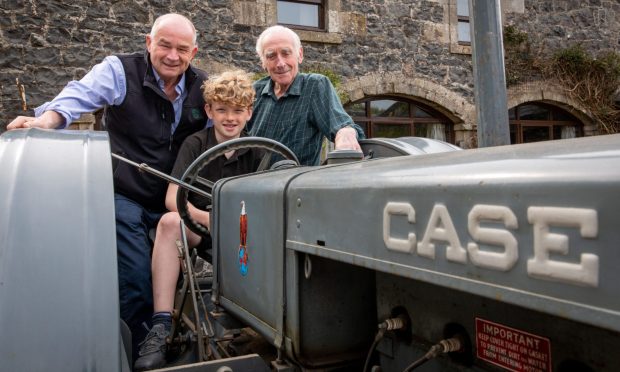
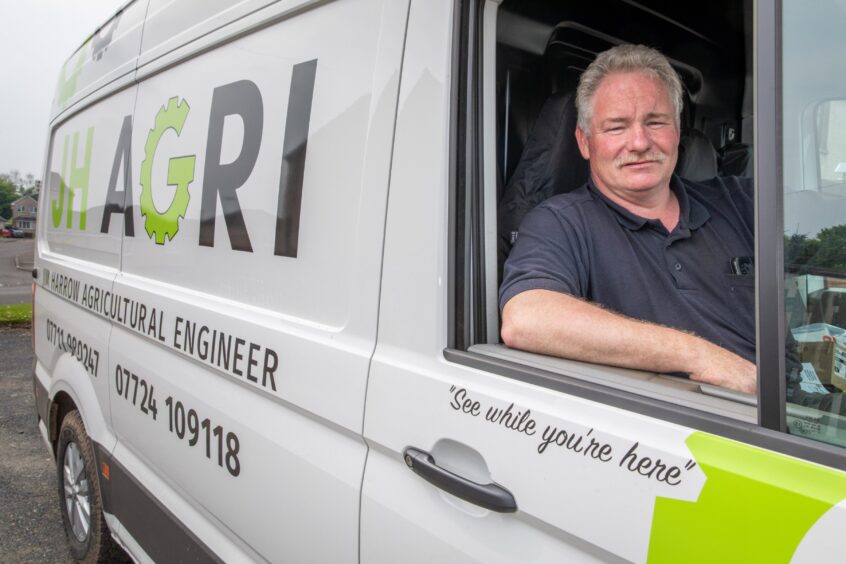
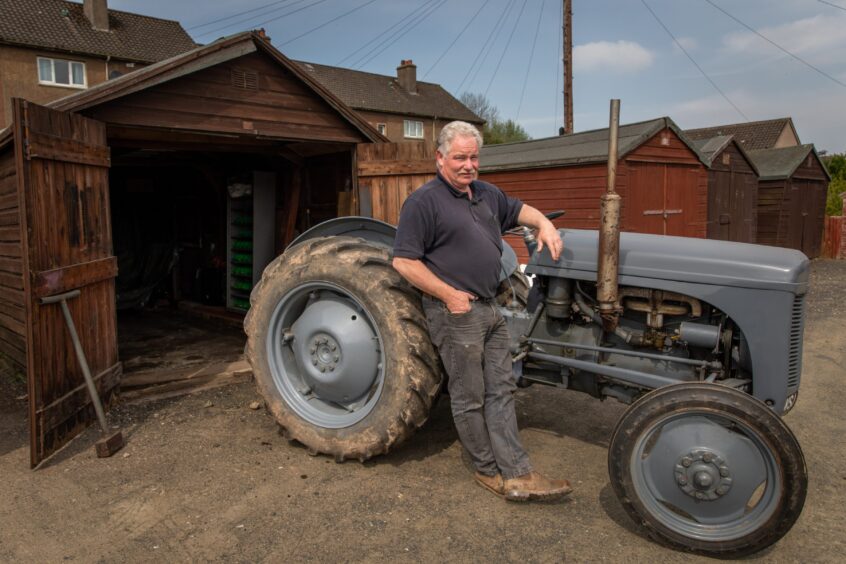
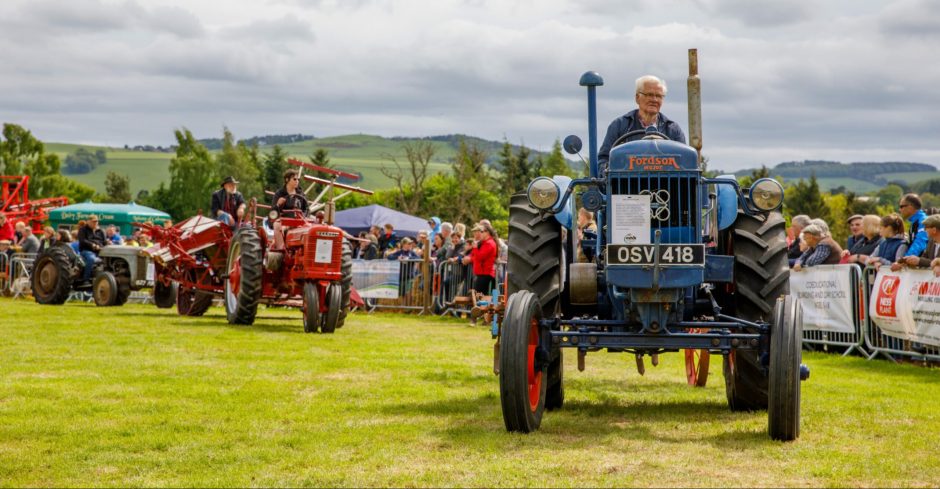
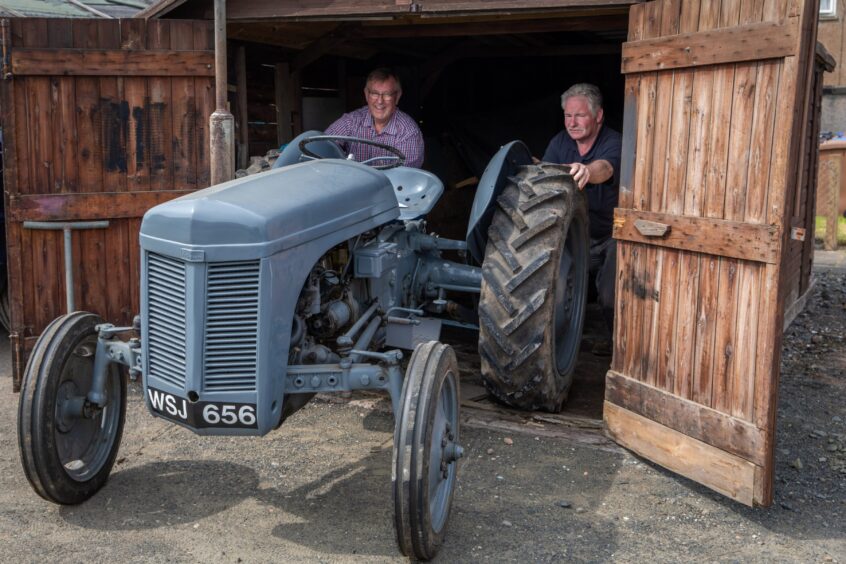
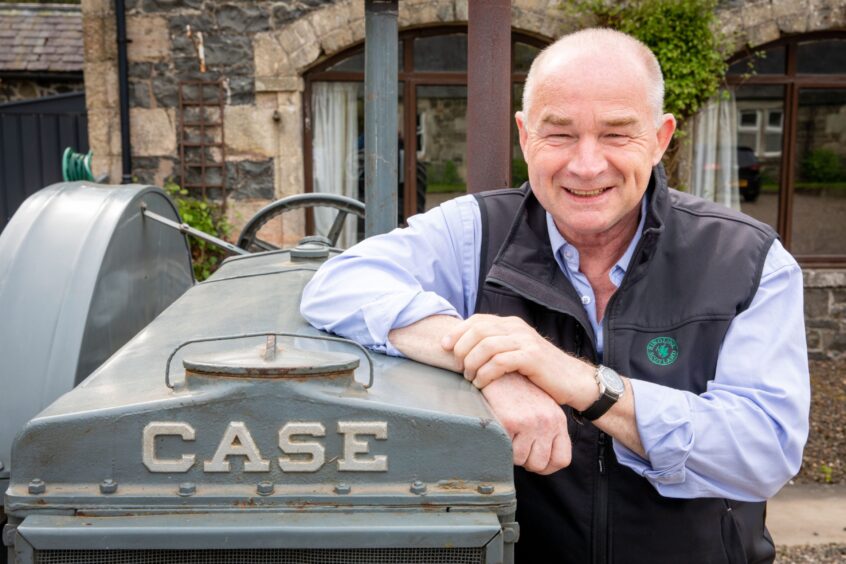
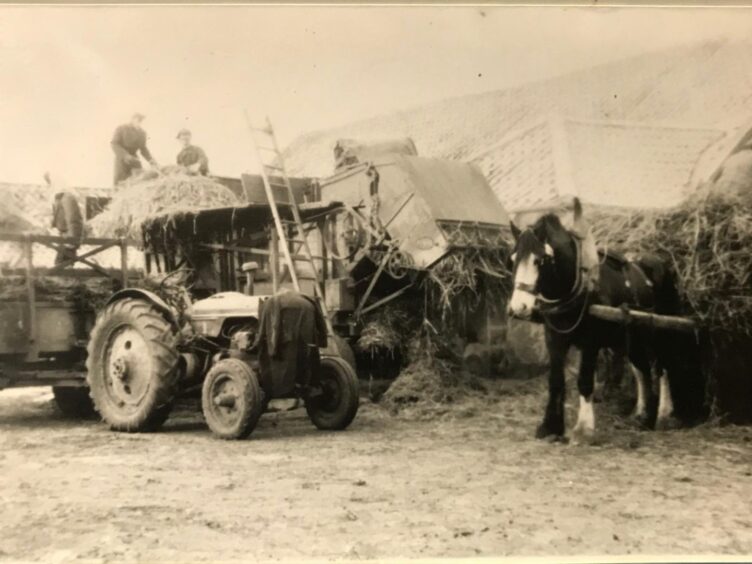
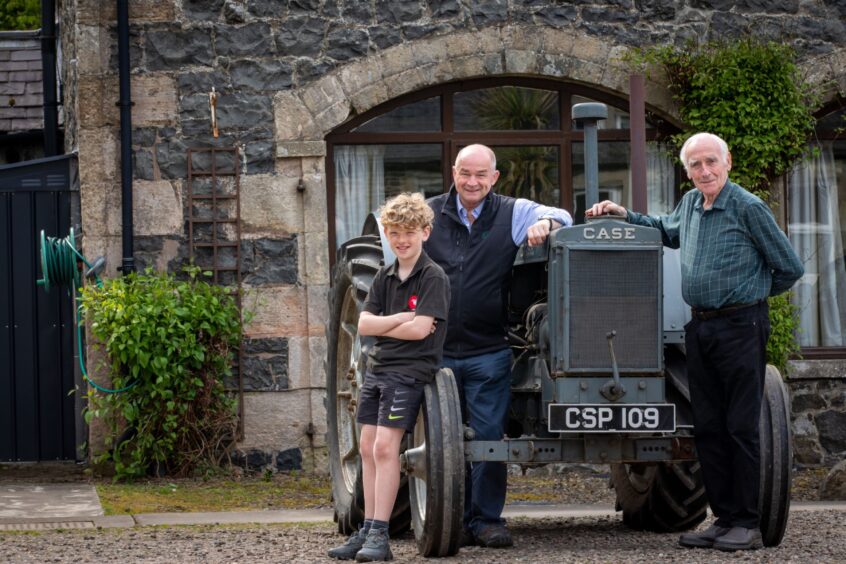
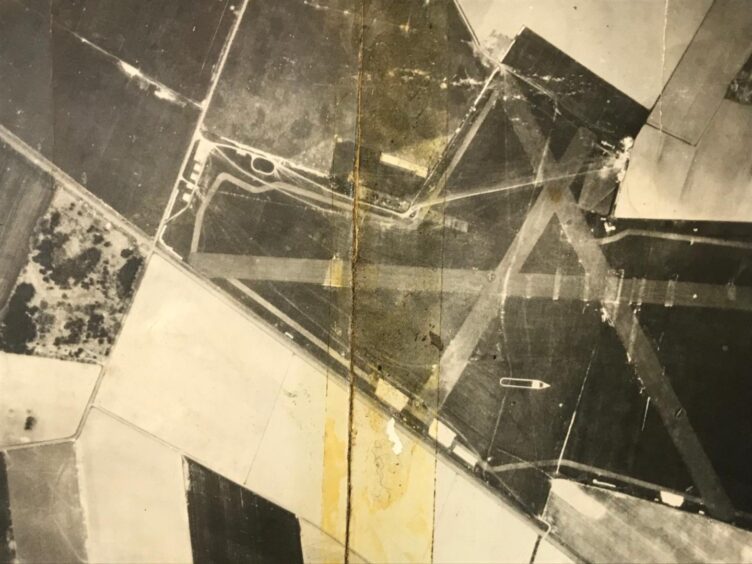
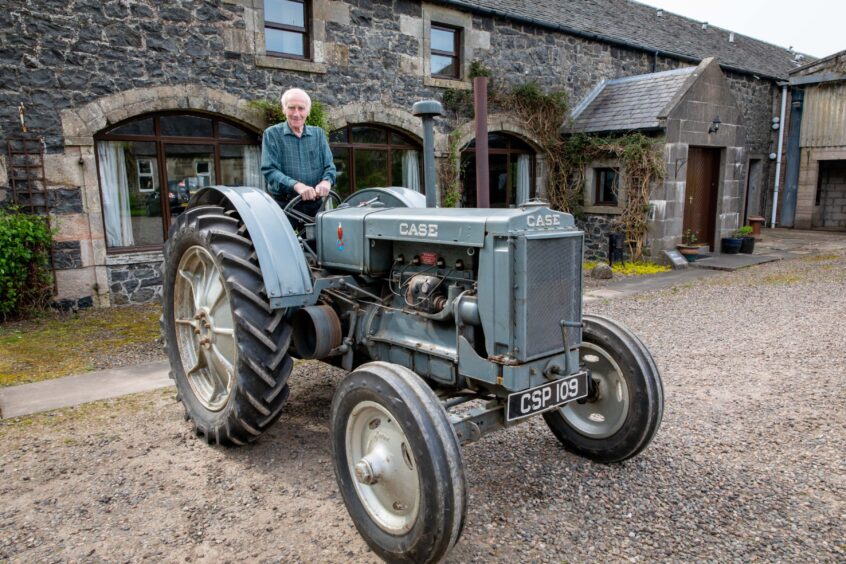
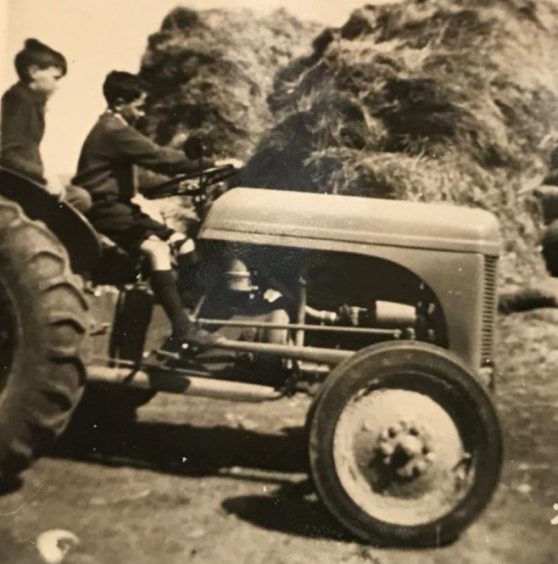
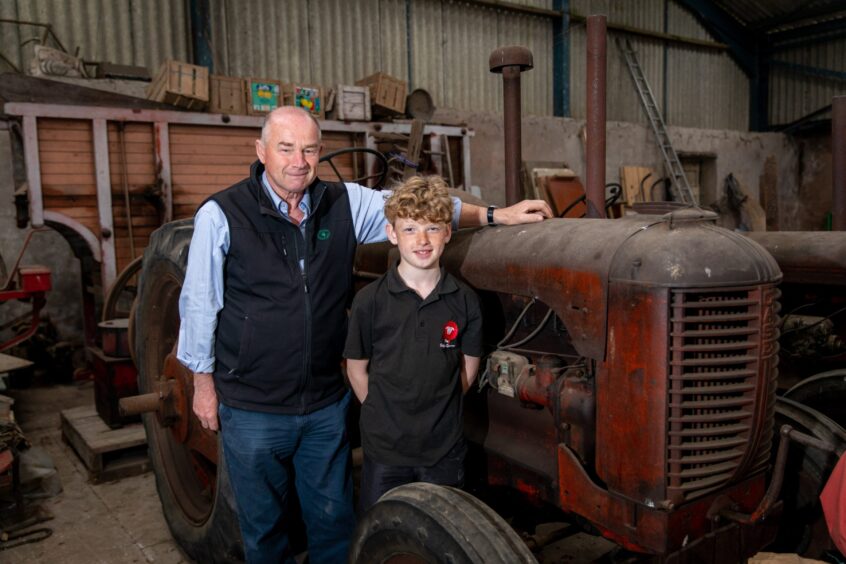
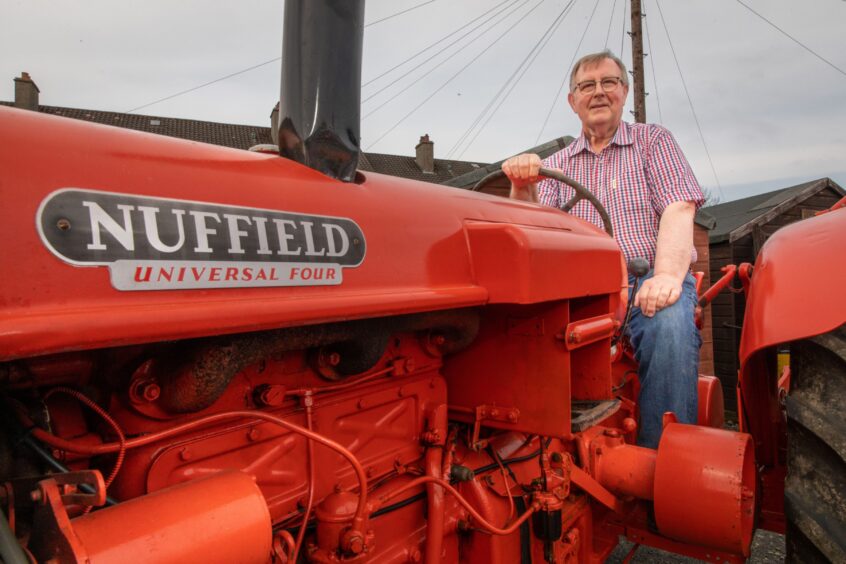
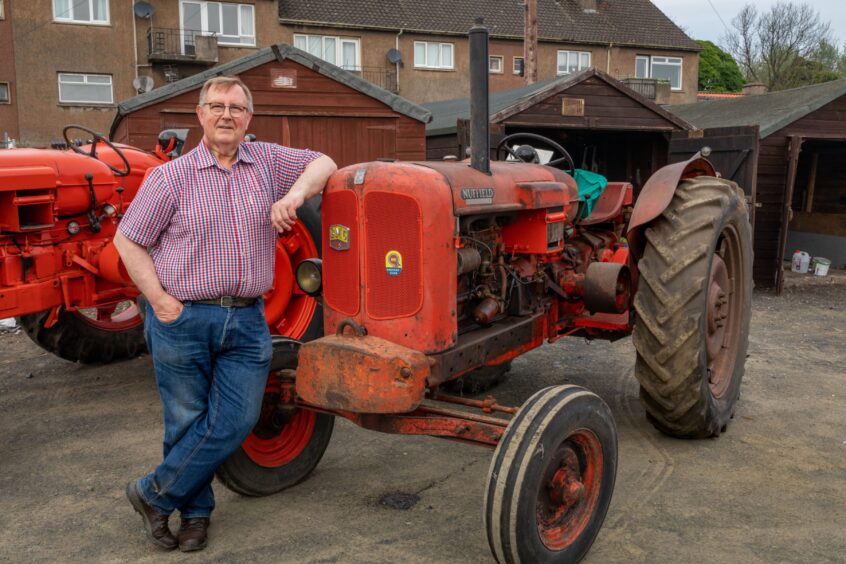
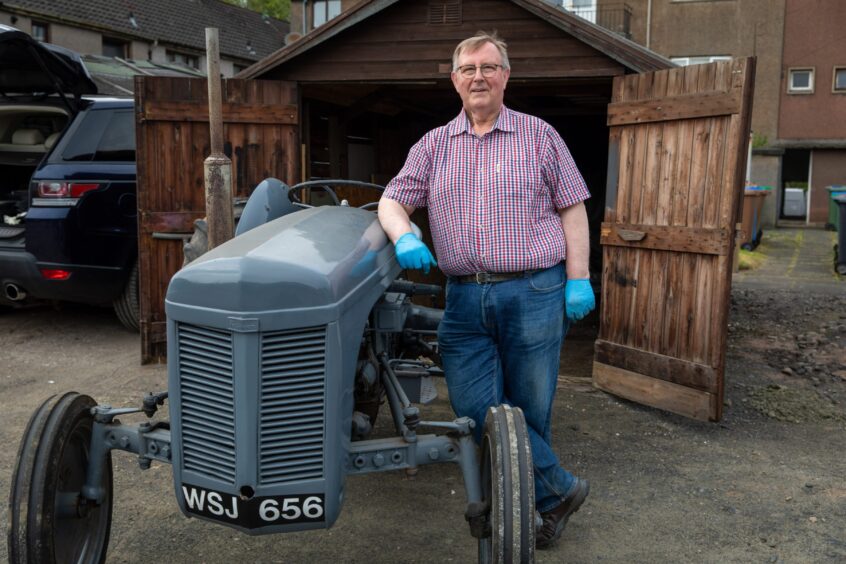

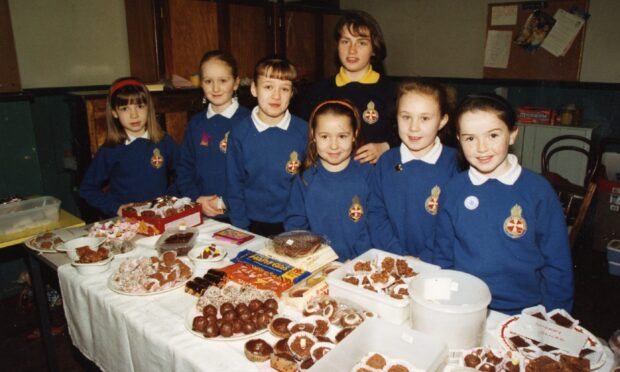





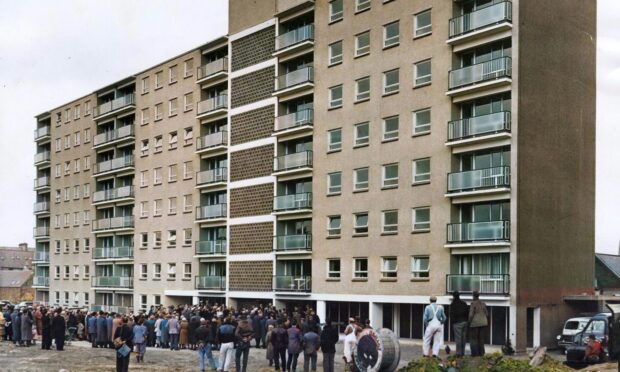
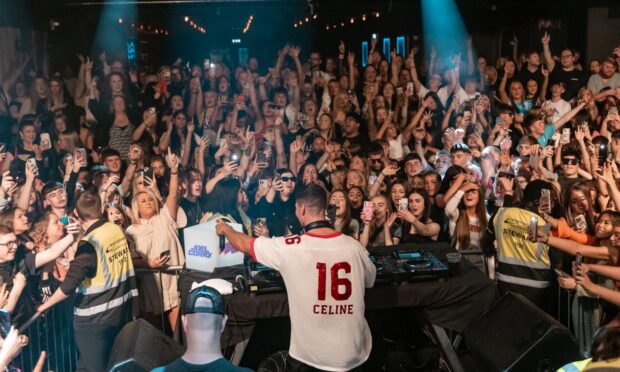
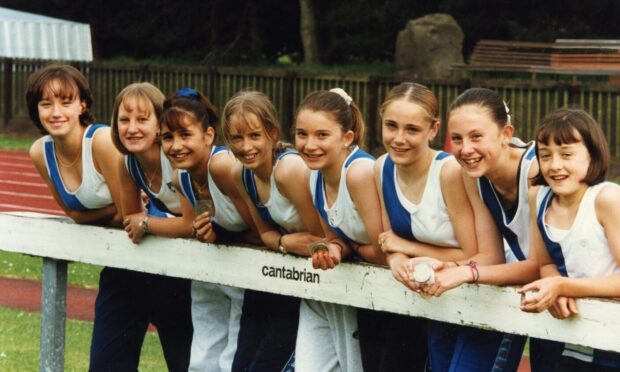
Conversation